Which one of the following reactions will not yield propionic acid ?
CH3CH2COCH3+OI−/H3O+
CH3CH2CH3+KMnO4(Heat),OH−/H3O+
CH3CH2CH3Br+Mg,CO2 dry ether/H3O+
CH3CH2CCl3+OH−/H3O+
To determine which reaction will not yield propionic acid, we need to analyze each of the given reactions step by step.
Step 1: Analyze Reaction A
- Reaction: CH3C(=O) + Iodine (in presence of base)
- Process: This reaction involves the iodiform reaction, where a methyl ketone (like propan-2-one) reacts with iodine in the presence of a base to form a carboxylic acid.
- Product: Propionic acid (CH3CH2COOH) is produced through hydrolysis after the iodiform reaction.
Step 2: Analyze Reaction B
- Reaction: Propane (CH3CH2CH3) with KMnO4 (in presence of OH- and H3O+)
- Process: Propane is an alkane and does not have any double bonds. KMnO4 typically oxidizes alkenes or alcohols, but it does not react with alkanes.
- Product: No reaction occurs, hence no product is formed, including propionic acid.
Step 3: Analyze Reaction C
- Reaction: CH3CH2CH2Br with Magnesium (to form Grignard reagent)
- Process: The Grignard reagent reacts with CO2 to form a carboxylic acid. The Grignard reagent formed here is CH3CH2CH2MgBr.
- Product: After reacting with CO2 and subsequent hydrolysis, butanoic acid (CH3CH2CH2COOH) is formed, not propionic acid.
Step 4: Analyze Reaction D
- Reaction: CH3CH2CCl3 with OH- (in presence of H3O+)
- Process: The reaction involves replacing chlorine atoms with hydroxyl groups, followed by dehydration to form a carboxylic acid.
- Product: This reaction ultimately yields propionic acid (CH3CH2COOH).
Conclusion
From the analysis:
- Reaction A yields propionic acid.
- Reaction B does not yield any product (no reaction).
- Reaction C yields butanoic acid, not propionic acid.
- Reaction D yields propionic acid.
Thus, the reactions that do not yield propionic acid are B and C.
Final Answer
B and C do not yield propionic acid.
---
- Reaction: CH3C(=O) + Iodine (in presence of base)
- Process: This reaction involves the iodiform reaction, where a methyl ketone (like propan-2-one) reacts with iodine in the presence of a base to form a carboxylic acid.
- Product: Propionic acid (CH3CH2COOH) is produced through hydrolysis after the iodiform reaction.
- Reaction: Propane (CH3CH2CH3) with KMnO4 (in presence of OH- and H3O+)
- Process: Propane is an alkane and does not have any double bonds. KMnO4 typically oxidizes alkenes or alcohols, but it does not react with alkanes.
- Product: No reaction occurs, hence no product is formed, including propionic acid.
- Reaction: CH3CH2CH2Br with Magnesium (to form Grignard reagent)
- Process: The Grignard reagent reacts with CO2 to form a carboxylic acid. The Grignard reagent formed here is CH3CH2CH2MgBr.
- Product: After reacting with CO2 and subsequent hydrolysis, butanoic acid (CH3CH2CH2COOH) is formed, not propionic acid.
- Reaction: CH3CH2CCl3 with OH- (in presence of H3O+)
- Process: The reaction involves replacing chlorine atoms with hydroxyl groups, followed by dehydration to form a carboxylic acid.
- Product: This reaction ultimately yields propionic acid (CH3CH2COOH).
From the analysis:
- Reaction A yields propionic acid.
- Reaction B does not yield any product (no reaction).
- Reaction C yields butanoic acid, not propionic acid.
- Reaction D yields propionic acid.
B and C do not yield propionic acid.
Topper's Solved these Questions
Similar Questions
Knowledge Check
Which of the following reactions will not yield phenol ?
A B
B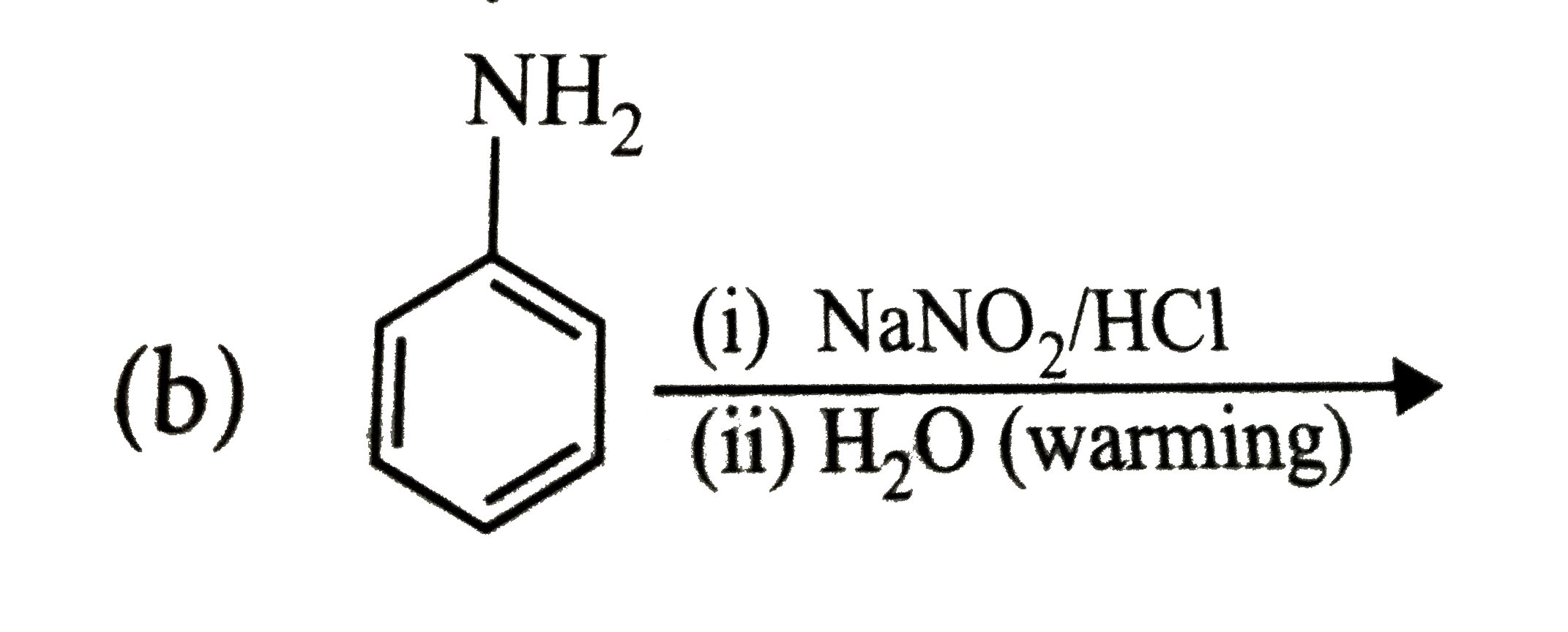 C
C D
D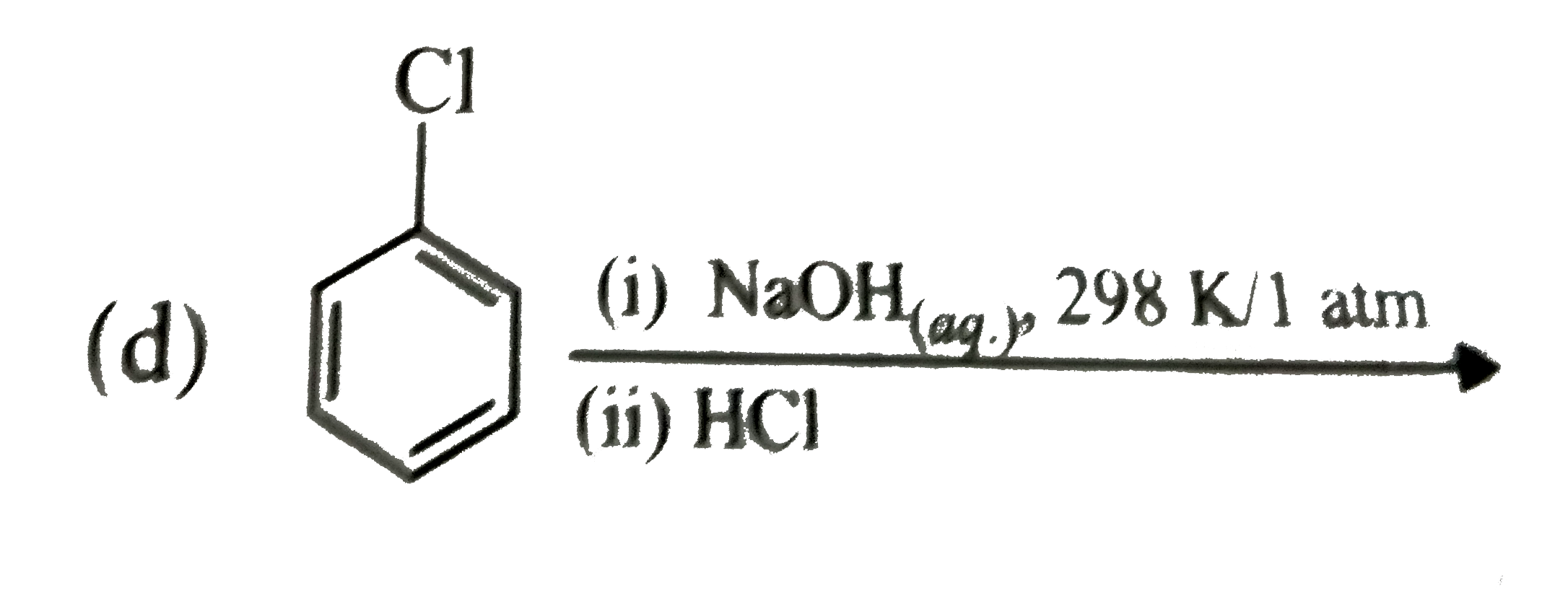
Which one of the following reactions will not yield a carboxylic acid ?
ARMgX+CO2→BPhOH+CHCl3+NaOH→CPhCN+H3O→DPhOH+NaOH+CO2→Which of the following reactions will yields phenol ?
A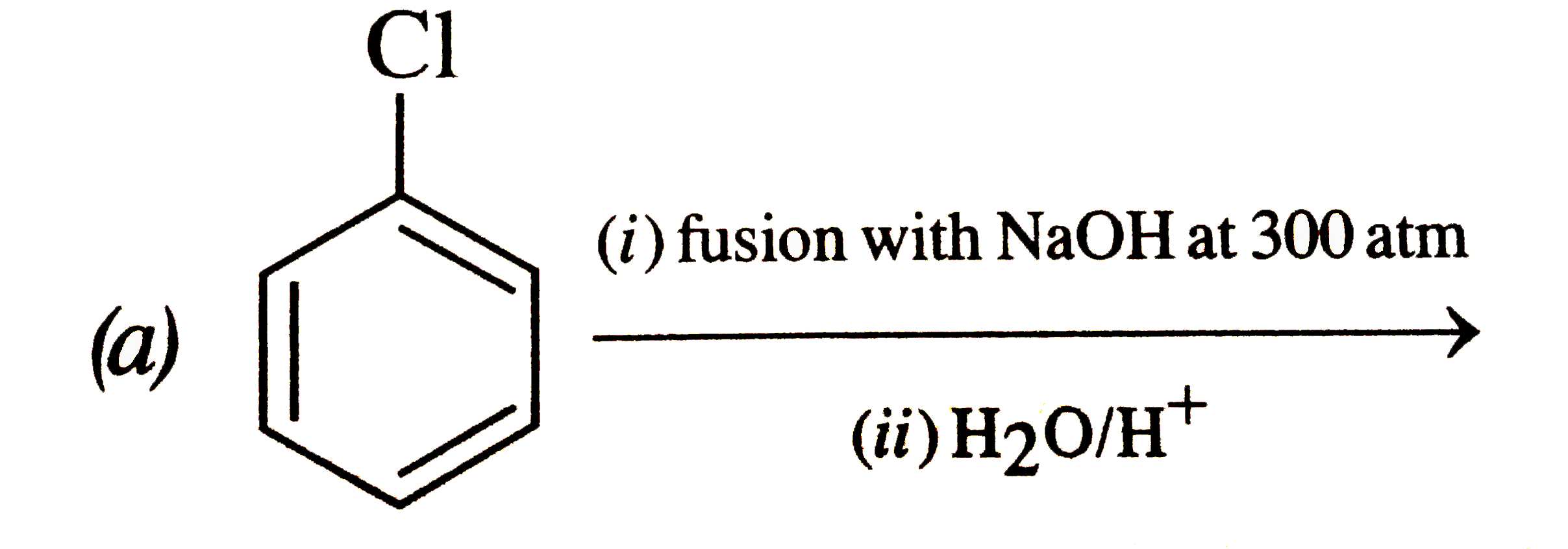 B
B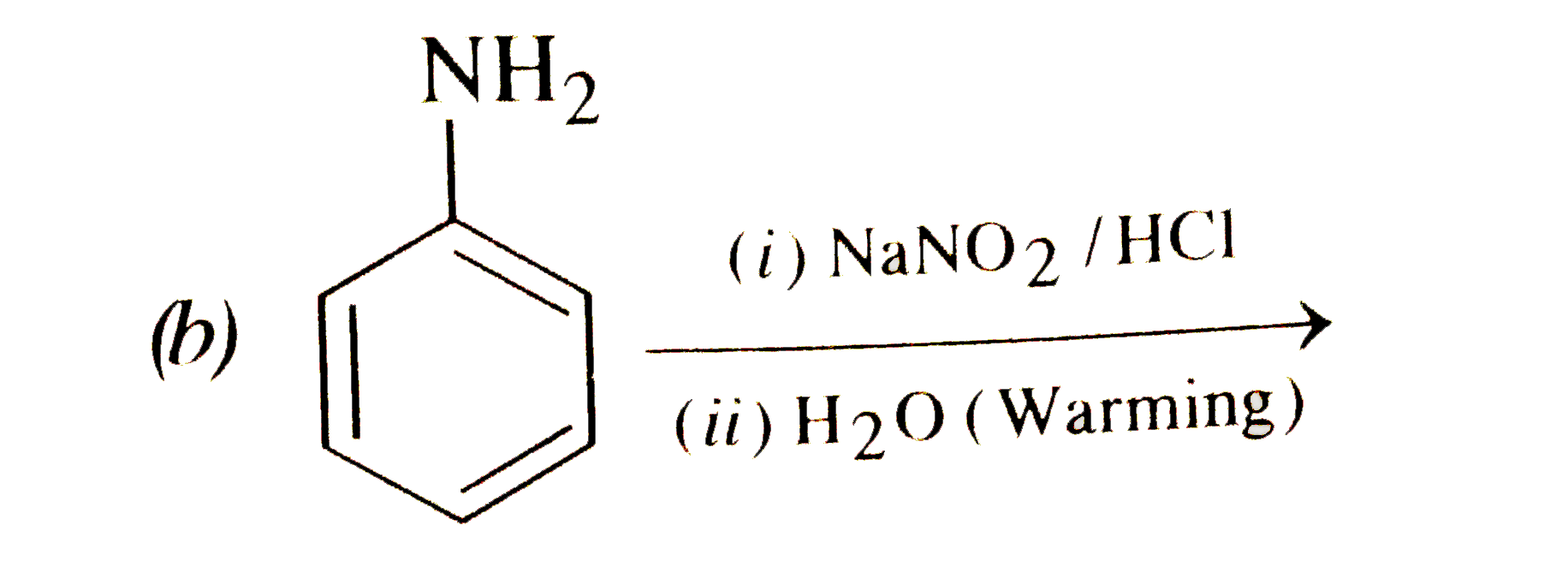 C
C D
D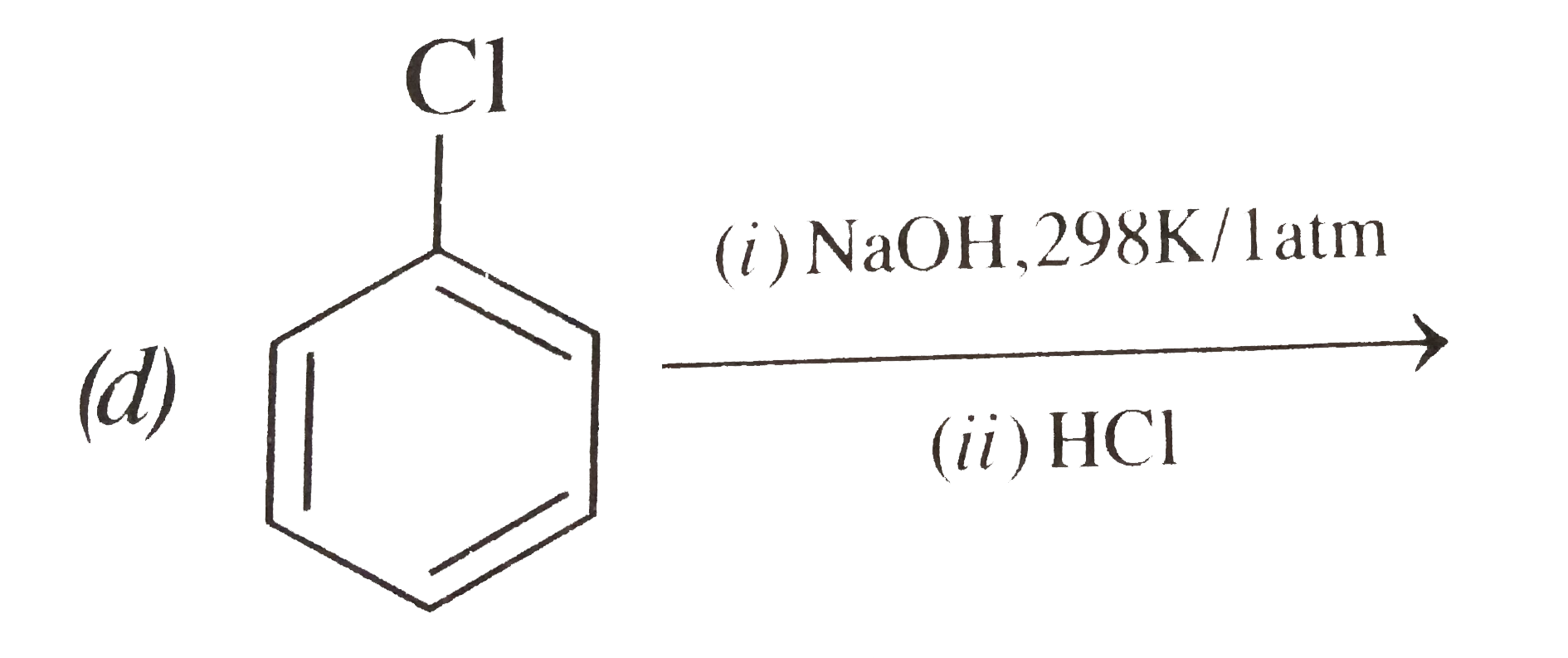
Which of the following reactions does not yield phosphine?
View SolutionWhich of the following reactions with yield propan -2-ol ?
View SolutionWhich of the following reactions does not yield an ether?
View SolutionWhich of the following reactions does not yield an ether?
View SolutionWhich of the following reaction does not yield acetone ?
View Solution
